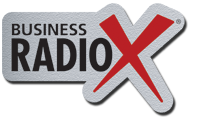The Alleyne Law Firm, LLC
ATTORNEYS AT LAW | ESTATE PLANNING · PROBATE
Atlanta Bankruptcy Attorneys
Below are the answers to many frequently asked questions (FAQs) regarding bankruptcy.
Frequently Asked Questions
Please contact us for a free consultation if you are considering bankruptcy or have questions regarding any other debt relief matter.
Q. What is bankruptcy?
A. Bankruptcy is a legal process designed to help those unable to pay their bills either eliminate (discharge) or reorganize (repay) their debt.
Q. Do I have to complete Credit Counseling before filing bankruptcy?
A. Yes. The court requires you to complete a certified Credit Counseling course within 180 days prior to filing bankruptcy. It can be done on the phone, in person or on the internet. You also have to complete a certified post-filing Financial Management course before your bankruptcy can be discharged.
Q. Is bankruptcy right for me?
A. Bankruptcy is right for those individuals who are unable to pay their bills and will prevent foreclosures, repossessions and put an end to collection activities and harassment.
Q. What are the benefits of filing for bankruptcy?
A. Most of your debt will be cleared (except those that are exempt from bankruptcy) in a personal bankruptcy, allowing you to begin anew. Filing bankruptcy can be dramatic; but it may be what you need to start over and get back on your feet.
Q. What is the difference between a Chapter 7 Bankruptcy and a Chapter 13 Bankruptcy?
A. Chapter 7 bankruptcy eliminates most unsecured debt. Chapter 13 bankruptcy reorganizes and sets up a repayment schedule for your debts.
Q. What debts can I eliminate under Chapter 7 Bankruptcy?
A. Chapter 7 bankruptcy will discharge your unsecured debts. This includes credit card debt, personal loans, judgments, medical bills, and past due utility bills.
Q. What can I keep after filing Chapter 7 Bankruptcy?
A. Under Chapter 7 bankruptcy, you may keep several "exempt" assets. These include your home, car, retirement benefits, and personal property.
Q. Do I have to file bankruptcy on all my accounts?
A. Yes, you must report all debts you owe on the petition and schedules, including disclosing all your assets.
Q. How much do I have to pay under Chapter 13 Bankruptcy?
A. The amount you pay under Chapter 13 bankruptcy is determined on an individual basis through the bankruptcy process and is based on your income, expenses, and assets.




